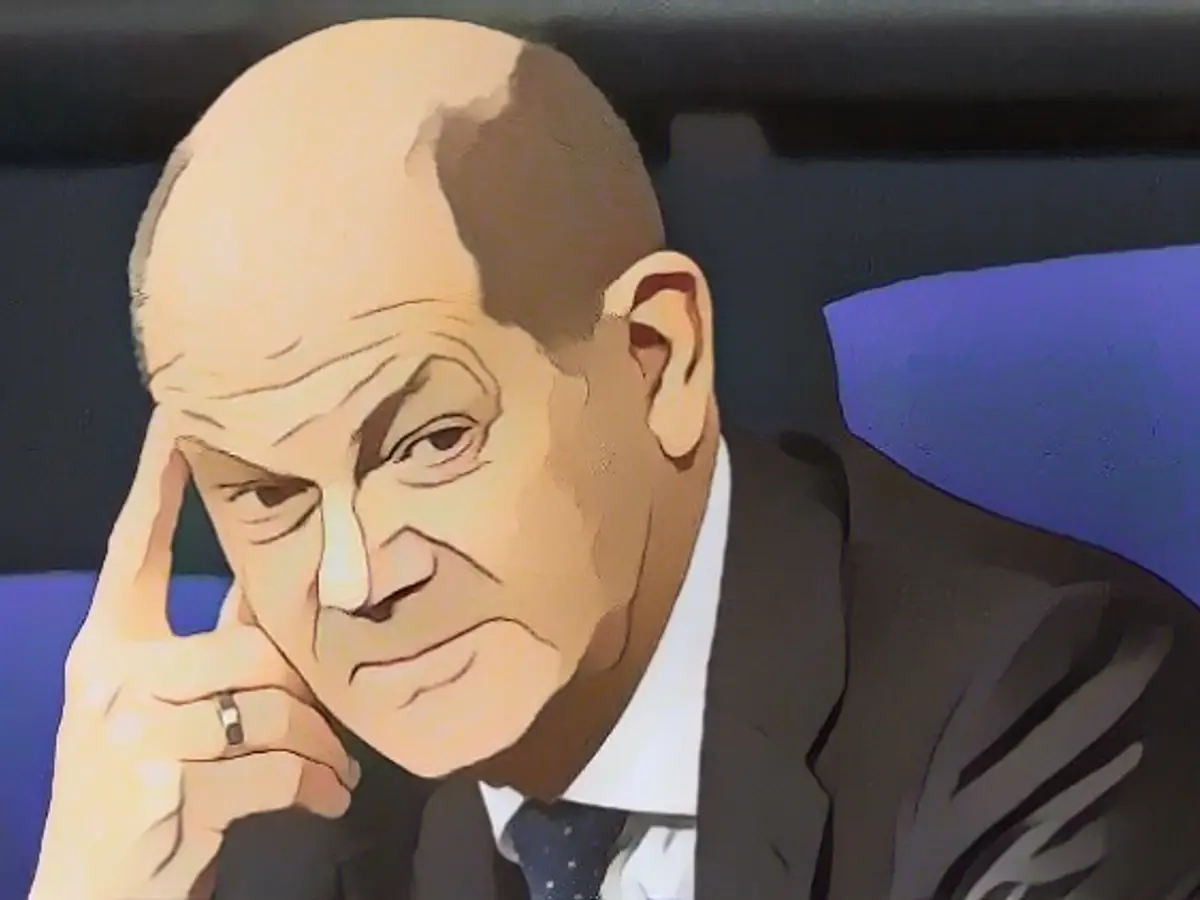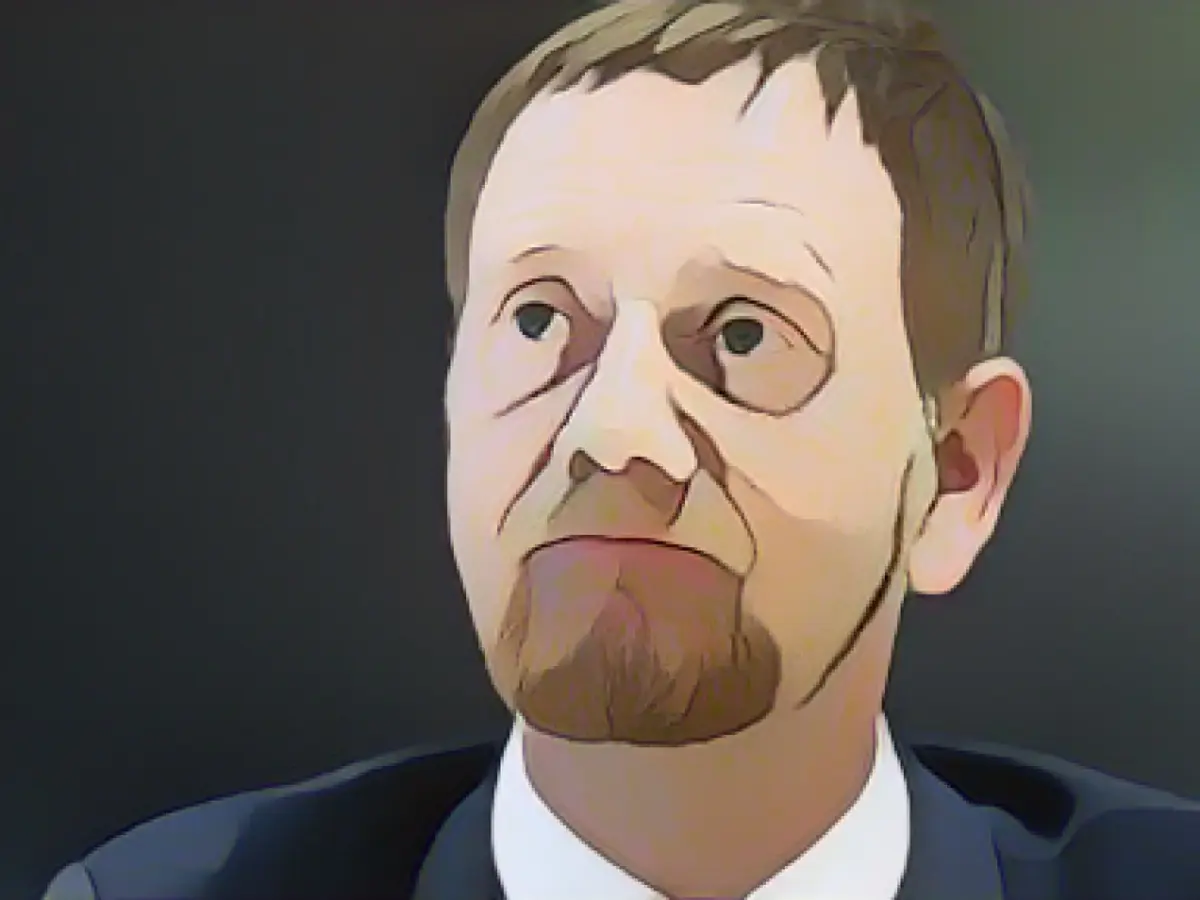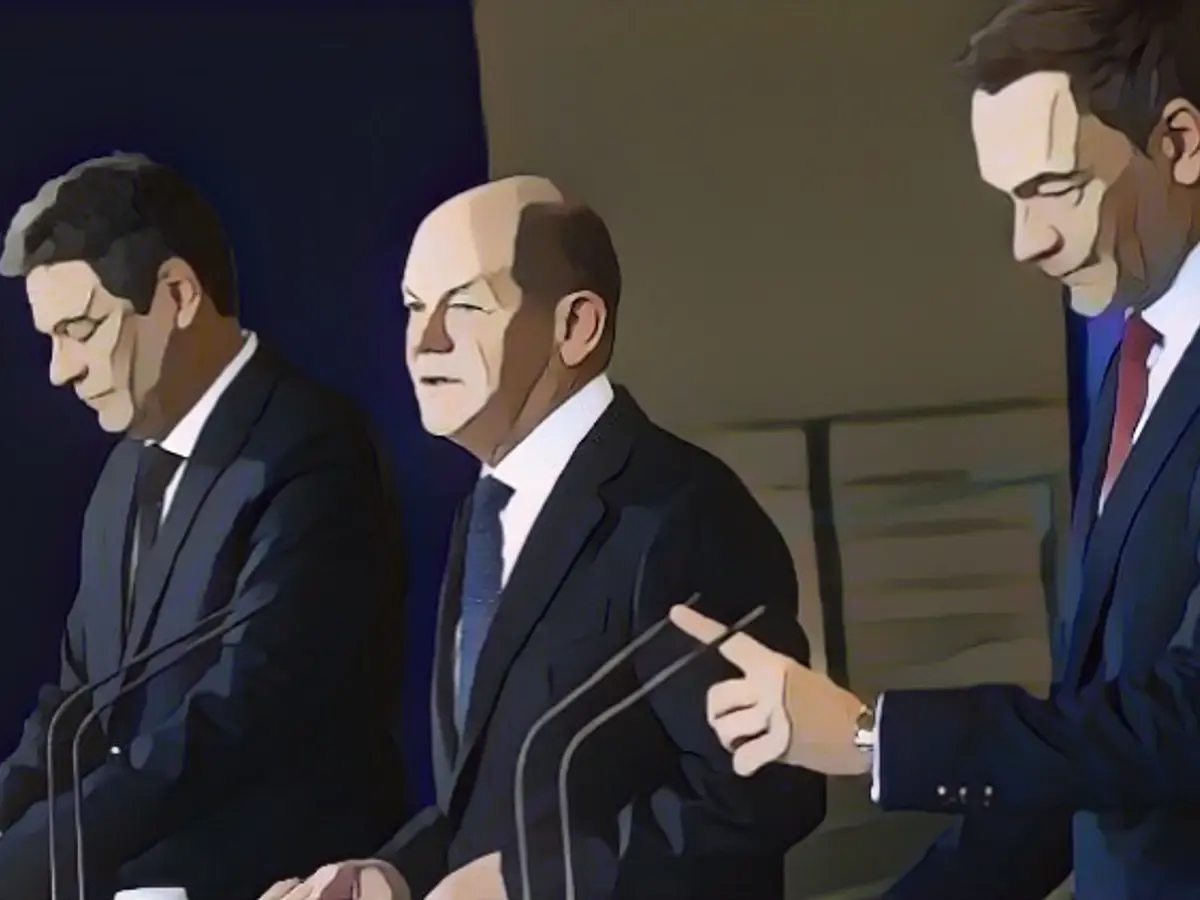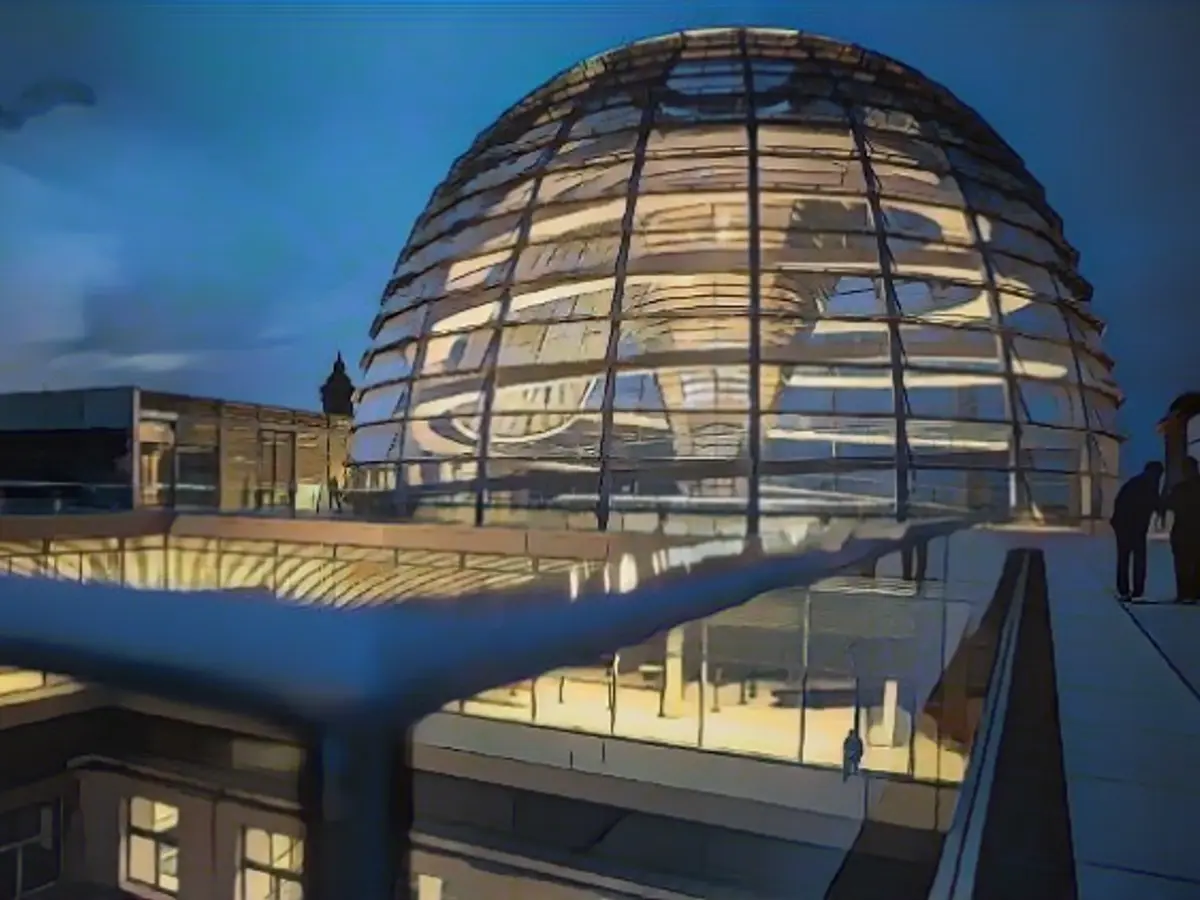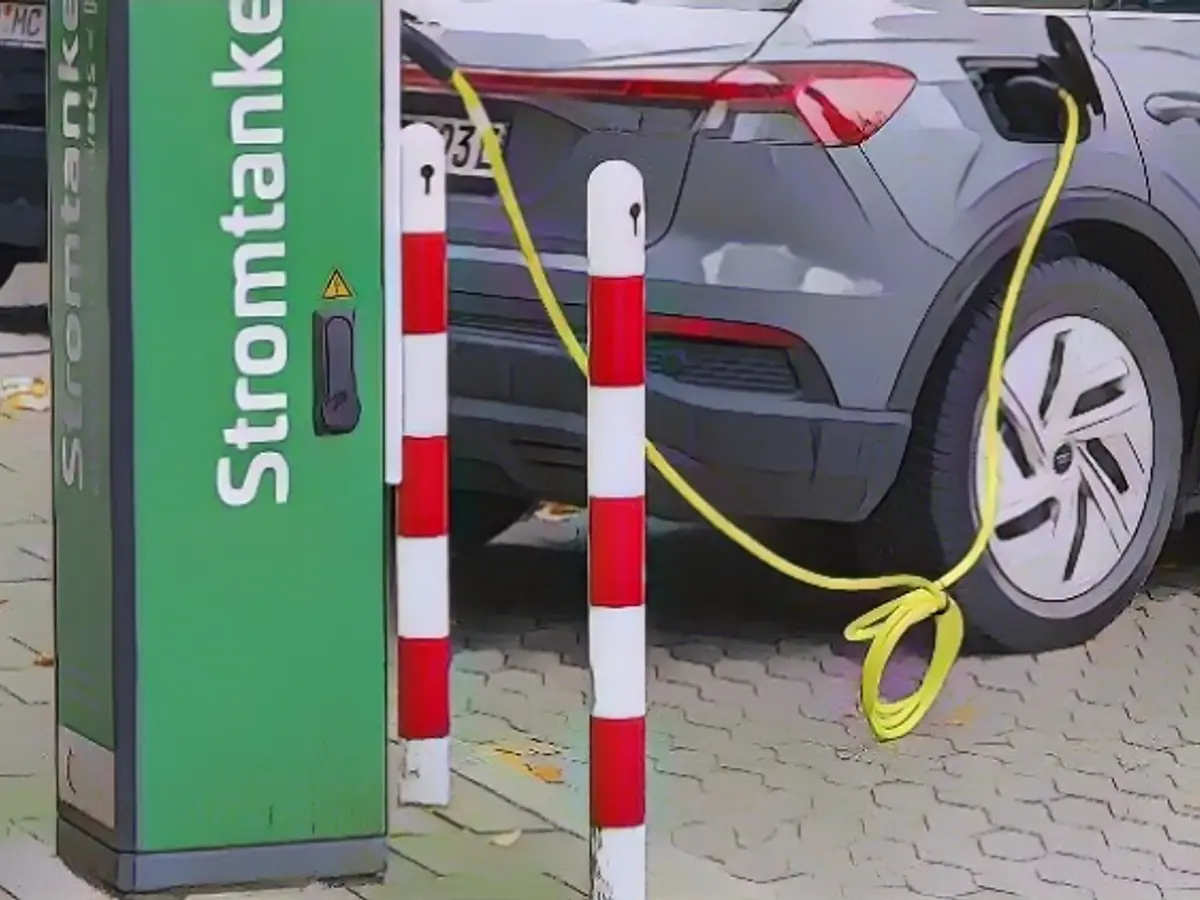Scholz Refuses to Seek Vote of Confidence, Criticizes Merz's Maneuvers
Chancellor Olaf Scholz has no intention of seeking a vote of confidence in the Bundestag, as demanded by opposition leader Friedrich Merz. Scholz, feeling the coalition government is on the right track with its budgetary policies, considers the request unjustified. However, he sidesteps one crucial issue.
The debate ignites after Merz criticized the coalition's agreement in the budget dispute for 2024. The CDU/CSU parliamentary group leader accused Scholz of employing financial policy tricks and predicted the federal government's failure to comply with the debt brake with the 2024 budget.
During an ARD program "Farbe bekennen," Scholz deemed Merz's request for a vote of confidence as "failed macker gesture." He believes that Merz wishes for a different scenario, which drives his loud whistling in the forest. Rather than confront Merz's accusations, Scholz praises the budget savings achieved through cooperation along with his team.
Affirming Promises on Budget Policy and Economic Transformation
Scholz reaffirms his pledge to maintain Germany as an efficient welfare state without raising tax rates for income and corporations. The government plans to continue providing funding for modernizing industries, including semiconductor production, green energy-driven steel production, and battery cell production.
The coalition will implement changes in budget policies for environmental protection. For instance, the CO2 price for petrol and heating fuels will rise, and a tax on aviation fuel will be set. A billion-euro subsidy for electricity grid charges will also be eliminated to support the transition towards a climate-neutral economy.
Evading Discussion on Additional Burdens for Families
When questioned about added burdens on families due to investments in climate protection and infrastructure, Scholz remains noncommittal. He defends the agreed relief measures, such as enhanced housing benefits and child benefit, concluding there will be no social cuts.
Coronavirus Pandemic Causing Budget Crisis
The current budget crisis in Scholz's government resulted from the Federal Constitutional Court's prohibition of postponing credit authorizations from the pandemic to other years. The decision rendered the second supplementary budget for 2021 incompatible with the Basic Law and invalid. The court consequently prohibited the retroactive transfer of 60 billion euros in coronavirus funding to the Climate and Transformation Fund (KTF).
Scholz expects the 2024 federal budget to go before parliament by the end of January or early February.
Additional Insights
Economic concerns have dominantly overshadowed climate protection in Germany's election campaign. Multifaceted factors play a role in this shift, including immediate economics challenges such as rising healthcare and pension costs, the restrictive "debt brake" fiscal rule, industrial competitiveness concerns, and public perception. These elements have driven candidate discourse towards growth and immigration control instead of climate change matters.
[1] "The Rise and Fall of Germany's Green Coalition - Polity," 2022.
[2] "Germany's Climate and Energy Policy - EurActiv," 2022.
[3] "Nuclear Power in Germany - World Nuclear Association," 2022.
[4] "Challenges for Germany's Climate and Energy Policy Brexit - Multilateralism," 2022.
[5] "Climate and Energy Politics in Germany - BBC News," 2022.
